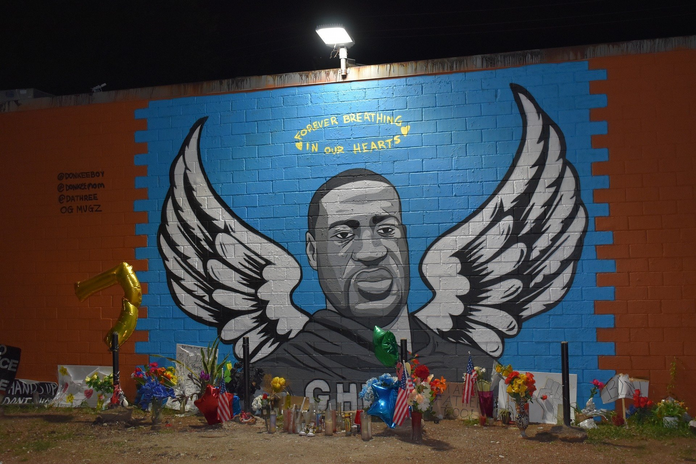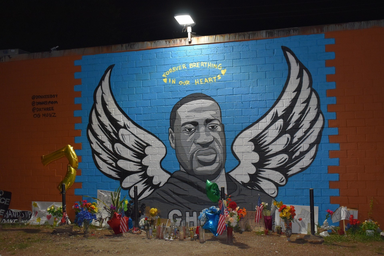Rarely is an officer ever convicted of crime against civilians, but the news from April 20 marked a new territory in the justice system. Roughly one year after George Floyd’s death at the hands of former police officer Derek Chauvin, the jury has found him guilty of second-degree murder, third-degree murder, and second-degree manslaughter.
The video of Floyd’s death erupted on social media and sparked a massive movement over the summer. Protests, social media posts and vigils were held around the world in support of Black Lives Matter’s goal of police reform. The movement started in 2013 following the acquittal of George Zimmerman, the former police officer who fatally shot Trayvon Martin.

The trial for the murder of George Floyd lasted for three weeks and consisted of numerous witnesses. Video footage was included from the nine minutes that Chauvin had his knee on Floyd’s neck in which Floyd is heard saying “I can’t breathe” more than 20 times.
Police had been called on Floyd at the grocery store due to his use of a counterfeit $20 bill. Once three separate police cars arrived at the scene, Floyd was reluctant to get into the police car as he said he was claustrophobic. He was pulled out of the car by Chauvin as seen in the video, but the reason is not clear.
At this moment, Chauvin proceeds to kneel on Floyd’s neck. The prosecution in the trial argued the cause of death was due to the restraints, while the defense blamed it on other causes.
The county medical examiner found fentanyl and methamphetamine in Floyd’s system, but did not link them to be the direct causes of death. Other medical experts further explained that “A healthy person subjected to what Mr. Floyd was subjected to would have died,” (npr.org).
What was notable about this trial is that police officers from the Minneapolis Police Department testified against Chauvin. Historically, officers have upheld a ‘blue-wall of silence’ – an unspoken objective where police officers will protect other officers despite their thoughts on the behavior under question.

Minneapolis Police Chief Medaria Arradondo explained how the use of force to initially try and get Floyd to comply was reasonable. However, once he was no longer resisting, Medaria said “in no way, shape or form is anything that is by policy, is not part of our training and is certainly not part of our ethics or our values.”
Other officers went on to agree with Medaria. They included how placing a knee on someone’s neck had never been taught or spoken of, due to its ability to cause fatalities.
Officer Barry Brodd testified for the defense and believed that Chauvin’s actions were justified. He went on to go back on a few of his points, making his argument difficult to follow.
When it came time for Chauvin to testify, he invoked his Fifth Amendment right which protects against self-incrimination. If he had testified, the jury might have gotten a different look at the events. He would have likely been subject to harsh cross-examination, too.
The verdict for the trial was reached in the late afternoon of April 20 with all 12 jurors voting to convict Chauvin. Identities of the jurors are protected as an order by the judge.
Prior to the conclusion of the trial, Minneapolis police prepared for possible riots in the event that Chauvin was found not guilty. Rather than the expected unrest, the streets were instead met with celebrations.
In this video, you can see Floyd’s family reacting to the verdict. Floyd’s brother, Philonise, said, “Today, we are able to breathe again” in post-trial interviews.
The trial comes at a time when police shootings are a topic of interest, with the most recent one being the fatal shooting of Ma’Khia Bryant, a Black teenager from Ohio. This conviction is monumental as it could set a precedent for officers in the future to be convicted of unjust force and violence.
Sources
https://www.nytimes.com/2021/04/21/briefing/chauvin-verdict-super-league-dementia.html
https://www.cnn.com/2021/04/20/us/family-george-floyd-verdict-reaction/index.html



